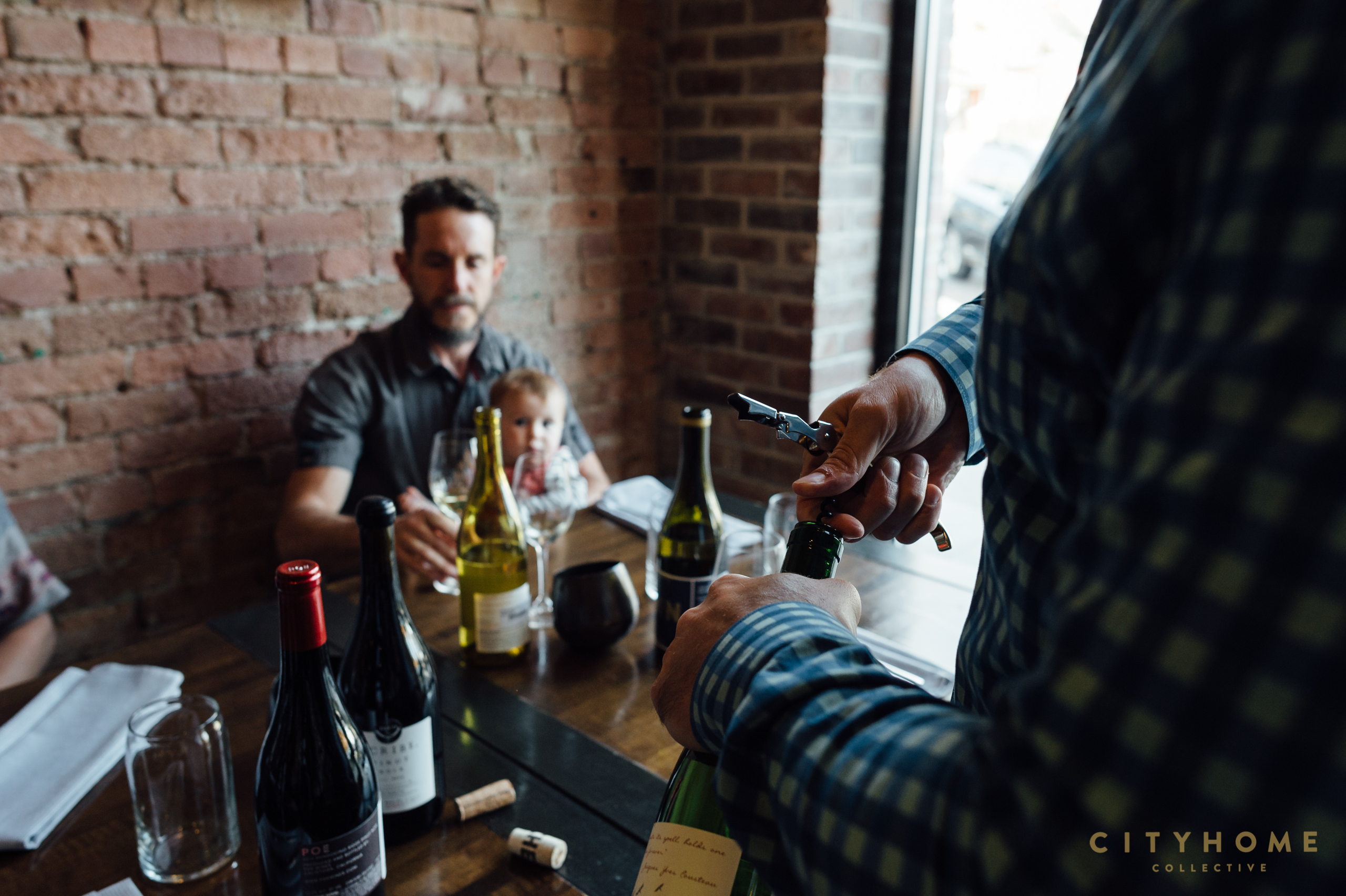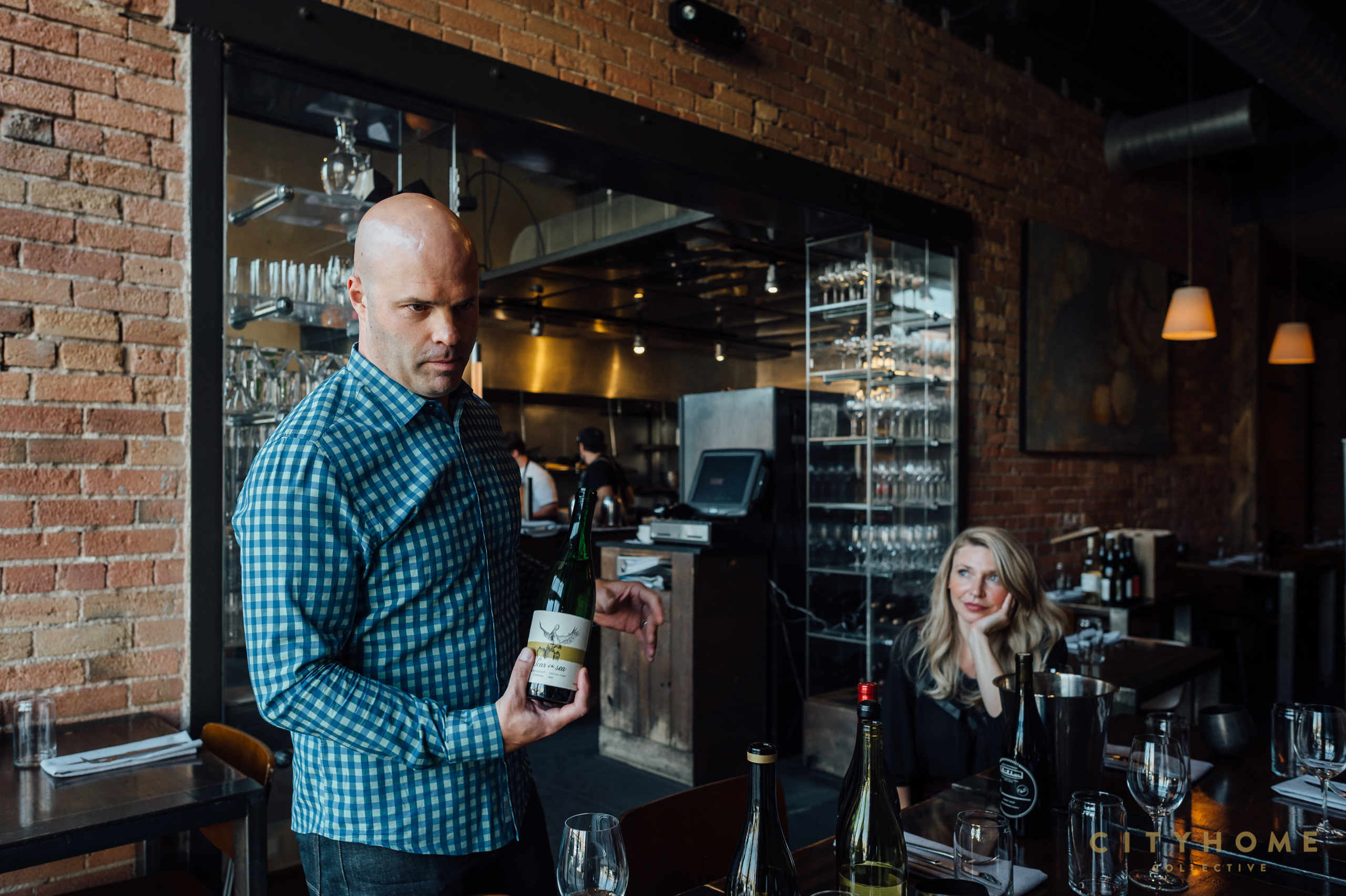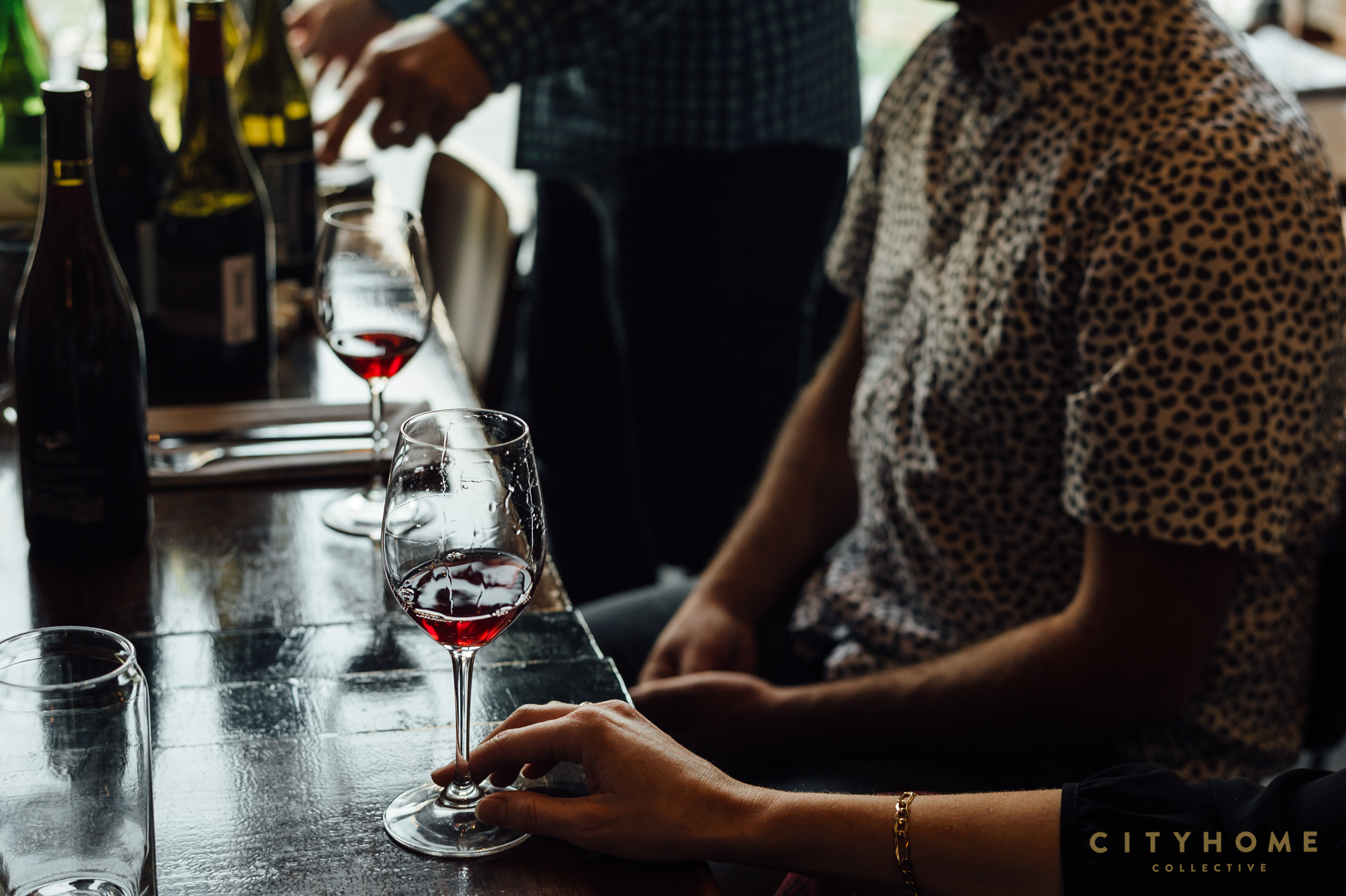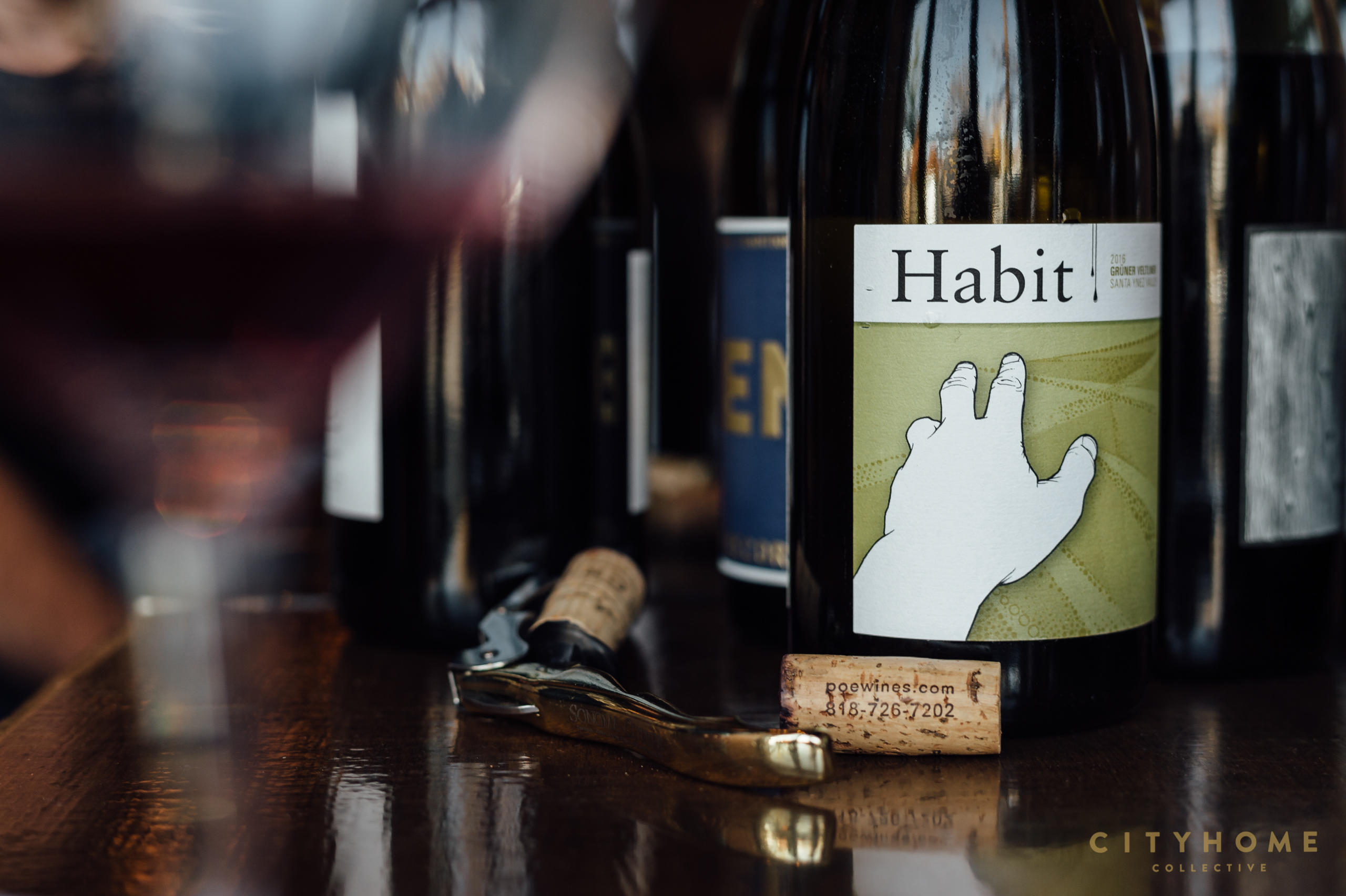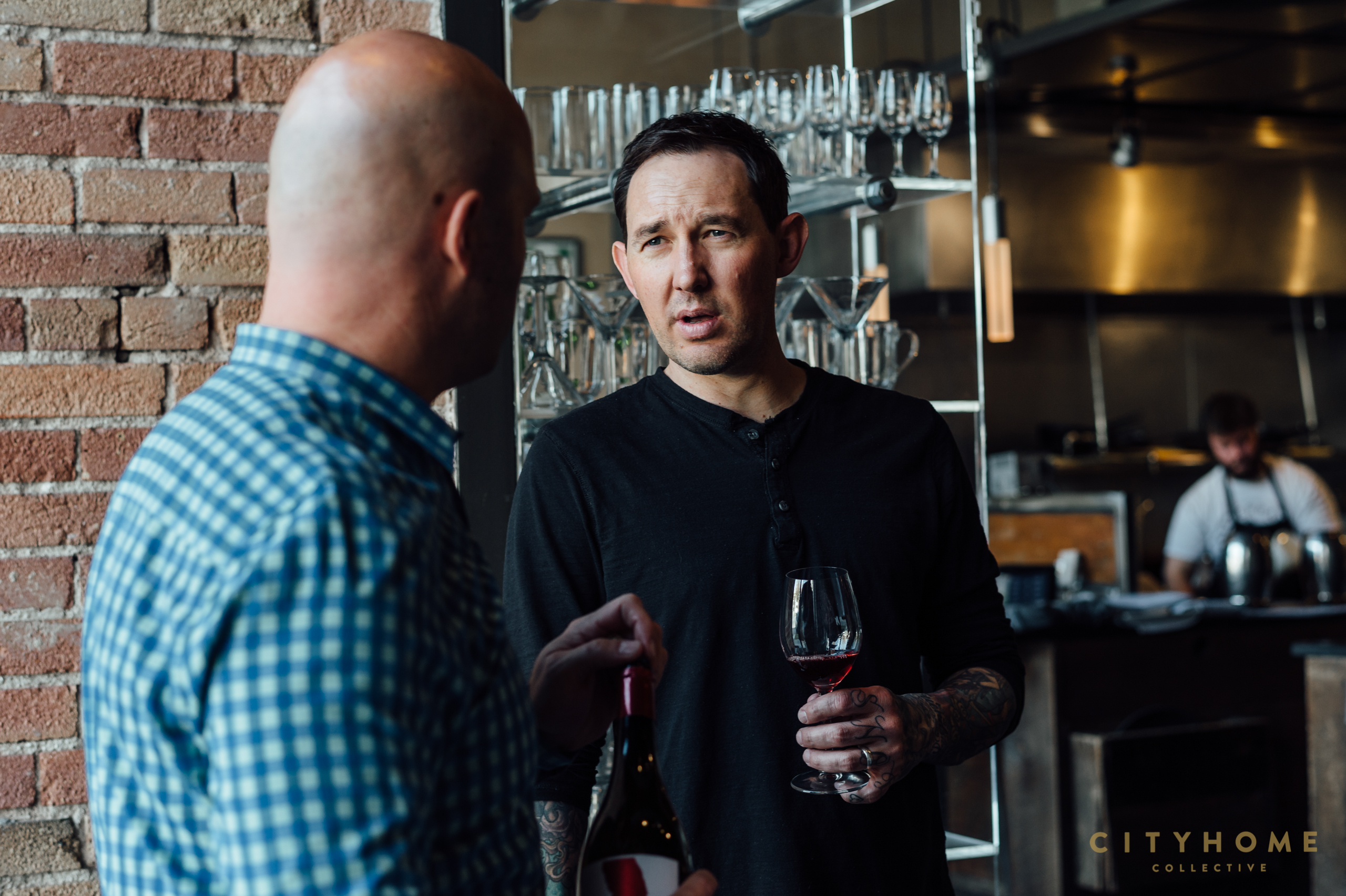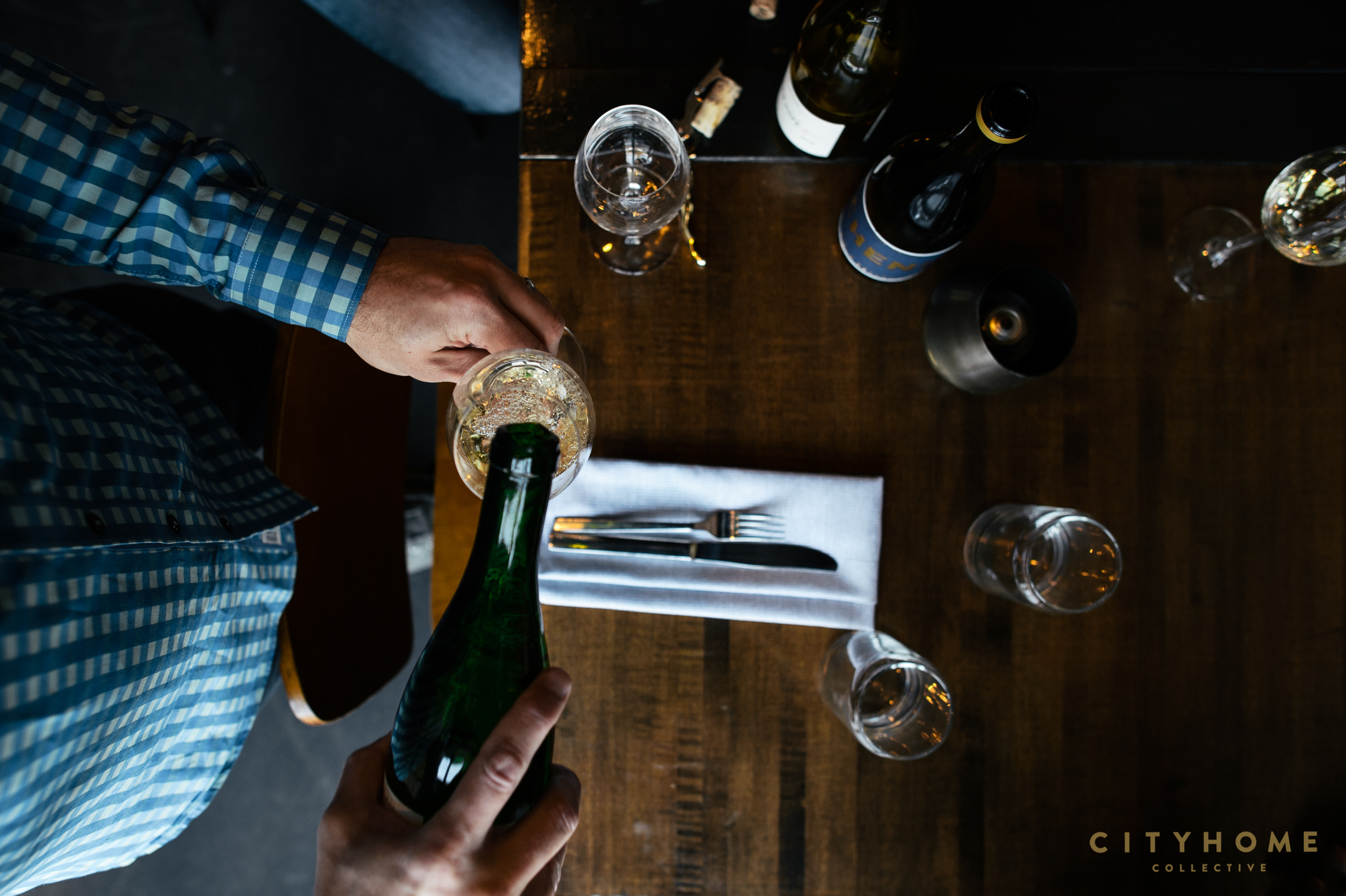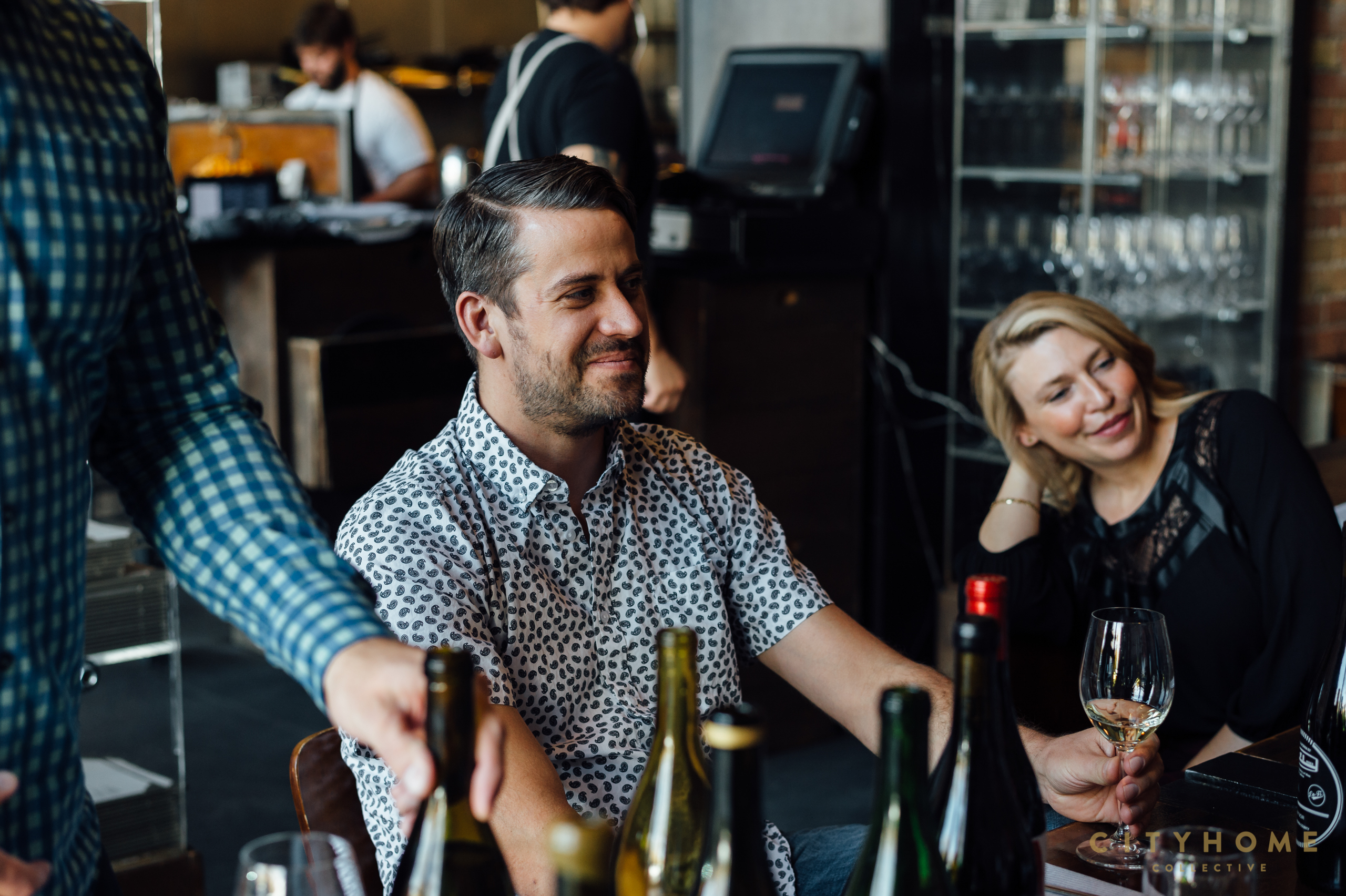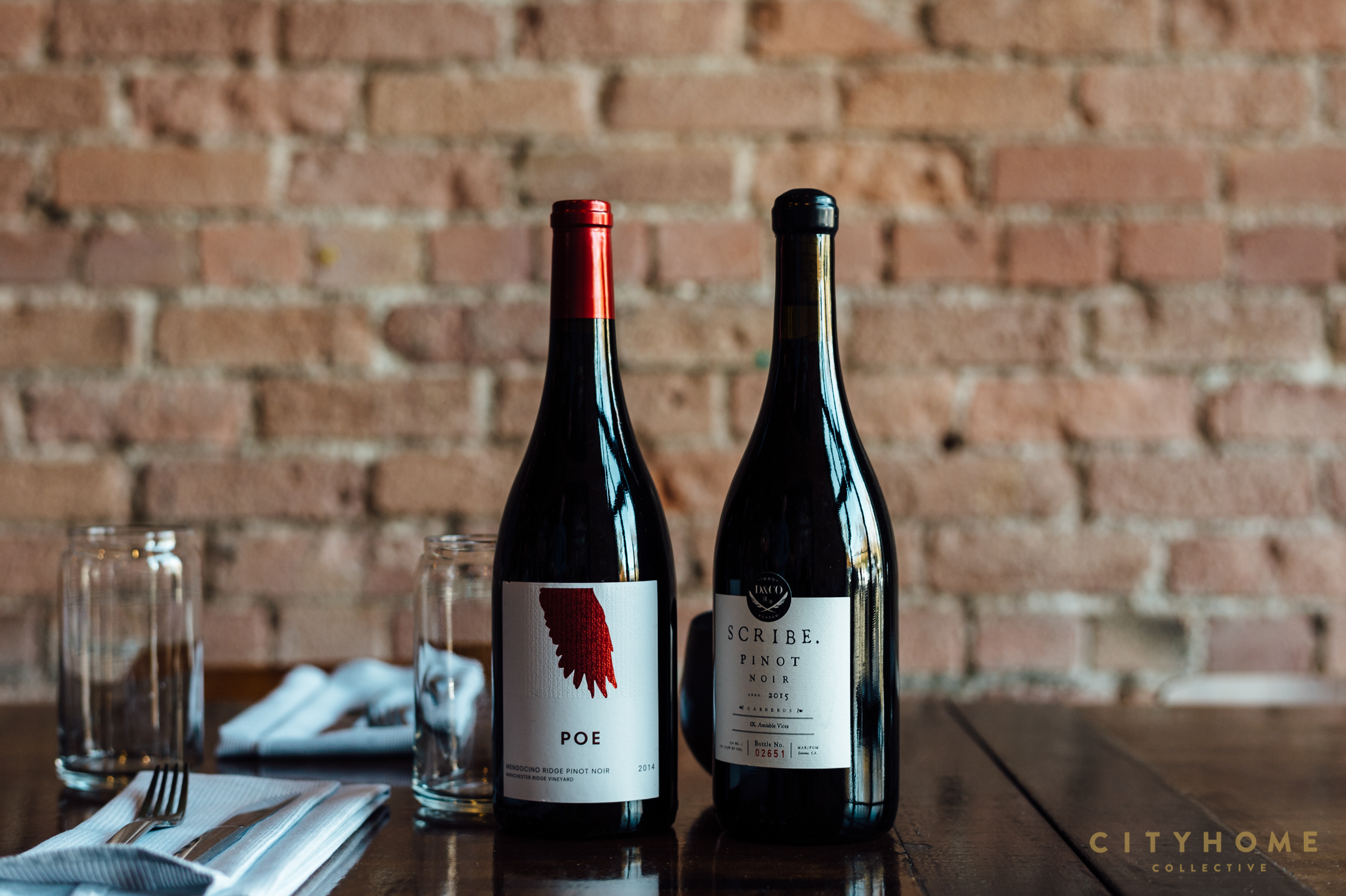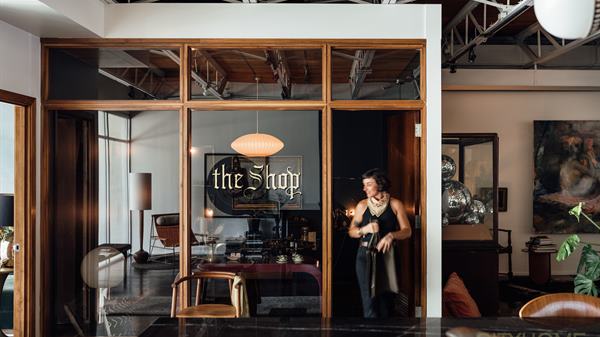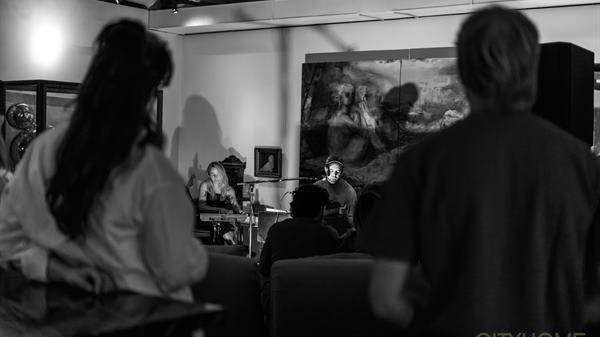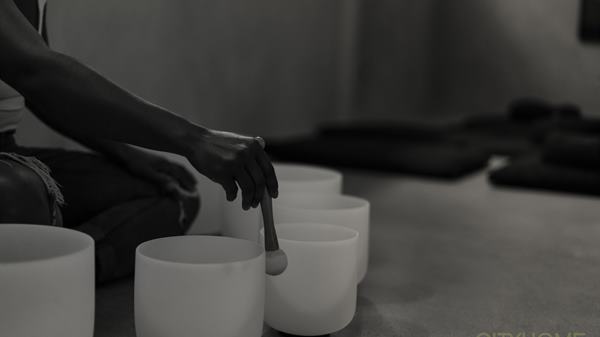Wine is food. To those for whom a glass of red is the reward for making it home after a hard day’s work, this may sound absurd. But a glass of wine, in the classic sense, does not a Scotch or dry martini replace. Wine, rather, is an integral part of a meal to be served and enjoyed at a table. As such, it should be treated with the same respect as any other dining staple, yet there seems to be a disparity between our awareness of that which we eat and that which we drink. We demand our food be of the highest caliber—that we know its place of origin and even how it was raised—but we’ll guzzle down just about anything poured for us.
Allow us to introduce to you a few pioneers out there trying to change the way we perceive wine.
Brett Ludemann, wine aficionado and owner of Flora/Fauna Wines, is leading the charge toward wine enlightenment here in our city of salt. We met up with him at one of our fave eateries, Pago, for a bit of education on this growing segment within his industry: natural wine.
What makes a natural wine…natural? This is actually a subject of debate within the natural wine community. There are, however, some agreed upon requirements for a wine to be considered "natural". First, the fruit sourced for the wine must come from sustainable, organic and biodynamically-farmed vineyards. Second, and what I feel as equally important, the wine must not have any additions. No commercial yeast. No bacteria or powdered or liquid tannin. No added enzymes, water, acid, color or any of the nearly 200 additives that are legally permitted in wine. These additives all give a deliberate, controlled flavor profile to wine rather than allowing nature to take its course.
Why should people care about natural wine? Wine should be fermented with as little manipulation as possible. I believe if people knew how many additives are in most wines, they would be concerned. The fact that any additives do not have to be disclosed on the label is insane. Natural wines are gaining popularity around the world. Here in Utah, we are working hard to educate people.
Where can we find natural wines in the wild? Andrew Cliburn at Current and Scott Evans and Ryan Wenger at Pago are both huge supporters of natural wines. They seek out small production, natural wines for their wine lists. More restaurants are discovering natural wines throughout the city. Places like Tradition, Meditrina, WeOlive, Copper Onion, and BTG all have some great natural options as well.
With the holidays coming, give us three wines that we simply must stock up on. 2016 Broc Love Red, 2015 Scar of the Sea Chardonnay, and 2015 Forlorn Hope "Que Saudade" Verdelho. These are great introductions to natural wines, and they're delicious. Since these are all small producers, the retail price in Utah is not marked up as high as large production wines. Most people aren't aware of this benefit of buying small production wines in Utah.
Why the name Flora/Fauna? I always thought that would be a cool name for a restaurant actually. I think it's also a quite fitting way to describe wine because I believe wine is the result of many different contributing flora and fauna. Grapes, cover crops in the vineyard, yeast, bacteria, microbes, and of course humans all have an important role in the production of wine.
It's safe to say you're killing it. So, what's next? This was my first year. So far, it's been better than I could have imagined. With what's happening in California right now and all the young producers of natural wine, it’s an exciting time for me. Next year, I'll be adding a few natural wines from around the world along with continuing to support the small, independently-owned wineries who make real wine.


